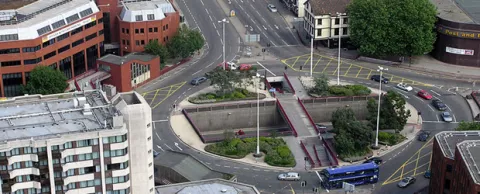
The Smart Cities Council has always said cities shouldn't go it alone when developing their smart city planning and implementation strategies: learn from the successes of those cities that have already made the commitments and taken the risks to achieve their goals.
Bristol was named the leading smart city in the UK in the just released UK Smart City Index conducted by Navigant Consulting for Council Associate Partner Huawei. So it's definitely a city to learn valuable lessons from. Yes, each city has its own specific needs and there is no one-size-fits-all solution. But you can take the lessons taught by smart cities like Bristol and adapt and leverage them to suit the needs of your city.
In last year's UK Smart City Index, London and Bristol were identified as the UK's leading smart cities. According to this year's report Bristol's combination of smart city strategy and execution has moved it to the top of the list.
What did Bristol do?
As the Index report explains, Bristol has made progress on several fronts. The city's private ultra-fast terabit fiber network, referred to as Bristol is Open (BiO), connects sensors on streetlights that monitor traffic and air quality and a supercomputer and 3D display at the Bristol Planetarium. Think of BiO as the smart city backbone.
It's also the foundation for the new Smart City Operations Centre that pulls together the city's Emergency Control Centre, Community Safety Control Rooms and Traffic Control Centre, according to an eeNews Europe article. The Smart City Operations Centre also is the source of services including alarm and security monitoring, telecare and more. The streetlights also carry Wi-Fi and RF mesh networks.
There's also the Smart Internet Lab at the University of Bristol, which works with cities throughout Europe. The Index report also identified other areas where Bristol has taken the lead, including big data, global research on 5G wireless tech, machine learning, driverless cars and innovations in energy.
Bristol also was praised for its commitment to community engagement. For example, the Citizen Sensing program created by Knowle West Media Centre, an art center and charity, offers citizens the opportunity to use or build sensors for issues they care about.
Why it matters for your city
Eric Woods, research director at Navigant, directed the study. As he explained, "UK cities are demonstrating an impressive commitment to service and technology innovation. They are embedding smart city ideas into city planning and operations. They are also preparing for the impact of the next wave of technologies, including 5G, autonomous vehicles, and machine learning. The growing contribution that local universities are making to these programs further emphasizes the importance of advanced technologies to the future of UK cities."
While Woods was referring to the accomplishments of UK cities, what he said could just as easily be taken as advice for all cities that want to ensure citizens have a sustainable, livable future to look forward to. Cities throughout the world are using some or many of the technologies Bristol has deployed and are preparing to some degree for the future technologies mentioned, such as driverless cars and Wi-Fi networks.
Not every city needs to do everything Bristol has done, but there are a few key takeaways that apply to all cities. Bristol's smart city effort has been possible because the city collaborates — with industry, government, citizens and academia. The city also has been zealous about choosing the technologies that fit its needs, technologies that would provide the most benefit for the most citizens. Also, those technology platforms and programs like BiO were built to accommodate a future of growth and to accommodate additional applications yet to come.
Doug Peeples is a Portland, Oregon-based writer specializing in technology and energy. Follow @smartccouncil on Twitter.



